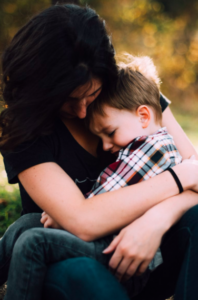 It takes a therapist willing to disclose to give you a perspective on the experiences that have shaped them and how it has influenced their professional lens.
It takes a therapist willing to disclose to give you a perspective on the experiences that have shaped them and how it has influenced their professional lens.
Ultimately, a marker of my childhood experiences that influenced my journey to this stage of my life as a therapist was my parents’ divorce.
In my case, it wasn’t so much how the act of the divorce affected me. I could at least sense that life would feel more secure in certain ways despite my parents separating. I understood to a degree that things would change, if not for the better. Our understanding of what “better” can look like can really hinge on what we see or what we hear growing up.
Ultimately, what affected me the most wasn’t my parents’ choice to divorce.
What impacted me the most was the fallout of the separation and how I saw my parents react as a result that impacted me so deeply. 
How a child reacts isn’t always universal. Unlike in my case, sometimes the initial separation can be harder than the next steps of what’s to come. How parents navigate through the stages of and after the divorce is finalized are key in helping a child find consistency and boundaries between households and their developing understanding of relationships.
What I didn’t realize at such a young age was that as much as a healing journey as I would embark on, my parents would be doing the same.
What I did realize was that as challenging as it can be to navigate changing landscapes, I was able to see new boundaries and experience a renewed understanding of relationships, even if they were in different households and with different experiences.
To my Child…
I wish I could hold you in those moments that your one parent would disparage the other parent in front of you. I would tell you that what you were privy to hearing was never okay, but you already knew that even if you didn’t have the language to express it. I wish I could tell you that a parent’s own road to recovery is not your battle, even though you were dragged into it, without your consent. It’s important that you know that you can still find moments to thrive in the midst of feeling like you have to survive. Attach yourself to those around you who truly see you for who you are and not just your circumstances. Remember that what you are experiencing is temporary, but not permanent. You will grow and become your own soul. You may just have to grow up a lot faster than a child should. Continue to strive for finding your own sense of identity and happiness.

To my parent…
Knowing what I know now and from my years of reflection and my own personal therapeutic journey, I wish I could implore you to go back and reframe the messages you were taught as a child and how they impacted your parenting. Your anger was never really healed, just hidden for as long as you could try and hide it. A wise man with a postal route and a guitar said, “Little pictures have big ears,” so why is it that I had to experience so much displaced anger and resentment that you refused to ever work through? A child asks, “Am I deserving of this? Are these messages true?” I would tell you to be honest and open with me, but don’t manipulate and alienate me from my other parent. Hear my voice.You have your voice as a parent, but what about my voice…do you ask me for it when it matters most? Show me what it means to be a healthy parent. I will, whether you recognize it or not, embark on a journey of asking myself with my own developed understanding of how to show up in future relationships. What do you want for me to understand about myself and relationships as I get older?
Seek your own path of healing. You have your own journey in addition to that of the bond between you and your child.
What can I do as a parent?
● Empathize strong and consistent boundaries congruent with a healthy parent-child relationship. Within that, focus on healing your own wounds. Healing your wounds is also scaffolding for your child that my parents take the steps they need to work on themselves and that I am not alone in my own healing stemming from a divorce.
● Inform and be honest about your values and expectations. Sometimes, those show up differently than the other parent. Let your child determine what feels right to them. Do your best to not manipulate or alienate your child’s relationship with the other parent whilst also making space to hear their concerns and giving them voice.
● Co-align on parenting strategies…as much as your capacities allow you too. This consistency is absolutely a vital stabilizer in a child’s life and can help not to drive a wedge in between a child and their different households.
● Value your child’s autonomy to use their voice to make decisions in the midst of a separation and afterwards.
● Little pictures have big ears…what is my child seeing, hearing, and learning from my words and behaviors?



